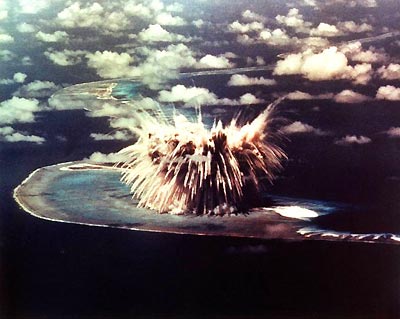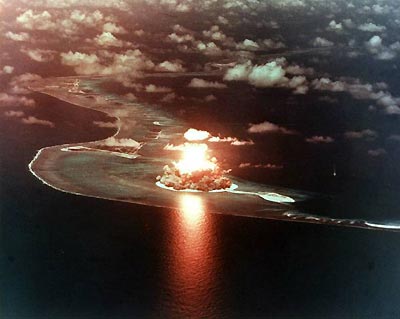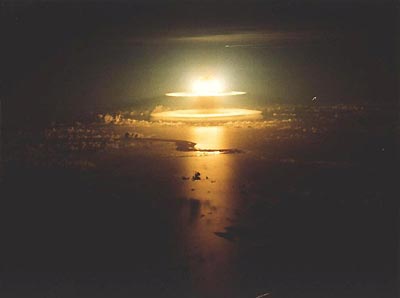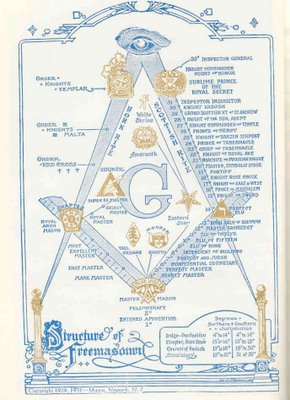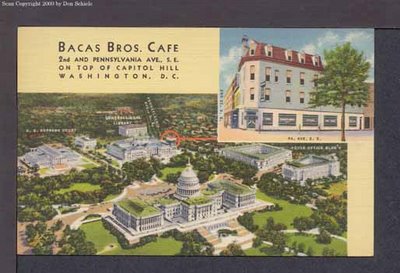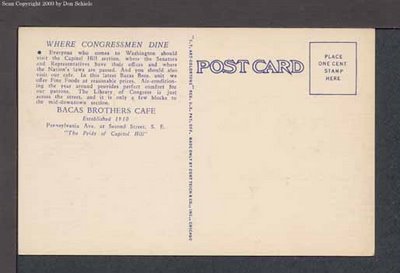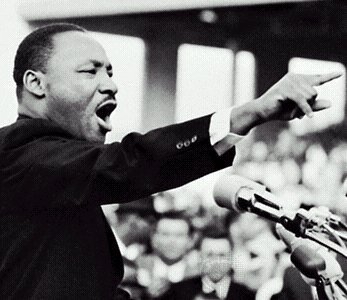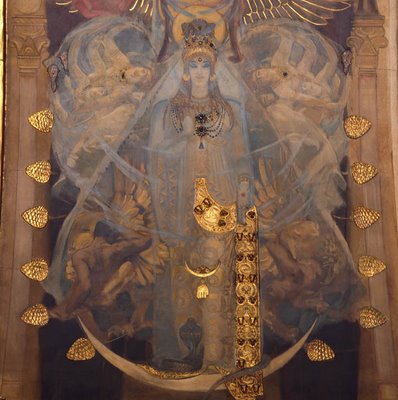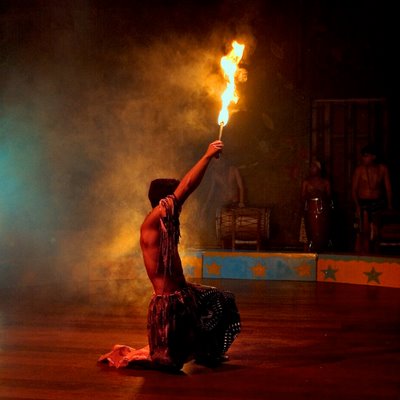16/11/08
25/3/08
1821 Μαρτιος, η επανασταση εδραιωνεται...
by
brexians
στις
05:49
0
of you said:
![]()
Ετικέτες FREEMASONRY, HISTORY, PHOTOS
14/7/07
8/5/07
18/11/06

ΡΟΜΠΕΡΤ ΛΟΟΥΕΛ
1917-1977
ΕΠΙΓΡΑΜΜΑ
Σκέψου τον Λεωνίδα και τους οπλίτες ίσως
να λάμπουν λευτεριά
χτενίζοντας ο ένας του άλλου τα χρυσά Μποτιτσέλεια
μαλλιά στις Θερμοπύλες – φίλοι η εραστές,
νύφη και γαμπρός –
κινήθκαν προς τη θέση θάνατος.
(Brexians lair)
by
brexians
στις
17:42
0
of you said:
![]()
7/11/06
οι ουρανοι ειναι δικοι σας
(Brexians lair)
by
brexians
στις
23:24
0
of you said:
![]()
Ετικέτες ΕΛΛΗΝΙΚΑ, AVIATION-SPACE, HISTORY, PEOPLE
γιορταζει η αεροπορια μας
(Brexians lair)
by
brexians
στις
23:13
0
of you said:
![]()
Ετικέτες ΕΛΛΗΝΙΚΑ, AVIATION-SPACE, HISTORY, PEOPLE
5/11/06
αλλου τα κακαρισματα και αλλου γεννουν οι κοτες
ΑΠΕΡΓΙΕΣ, ΚΑΤΑΛΗΨΕΙΣ, ΡΑΤΣΙΣΜΟΣ, ΞΕΝΟΦΟΒΙΑ, ΟΜΑΔΙΚΟΙ ΒΙΑΣΜΟΙ ή ΠΑΡΤΟΥΖΕΣ (ΘΑ ΔΕΙΞΕΙ)!
ΚΑΙ ΣΤΗΝ ΦΑΣΙΣΤΙΚΗ ΑΜΕΡΙΚΗ ΜΙΛΑΝΕ ΚΑΙ ΑΣΧΟΛΟΥΝΤΑΙ ΜΕ ΤΟΝ ΠΟΛΙΤΙΣΜΟ ΜΑΣ….
ΕΙΝΑΙ ΝΤΡΟΠΗ ΜΑΣ ΜΕΓΑΛΗ ΜΑΣ ΝΤΡΟΠΗ!!!
(Brexians lair)
14/10/06
LET'S SEE...
UNITED NATIONS APPOINTS REPUBLIC OF KOREA’S BAN KI-MOON AS NEXT SECRETARY-GENERAL;
BAN, DEEPLY TOUCHED AND INSPIRED, VOWS TO ‘BUILD BRIDGES, BRIDGE DIVIDES’
Acting on the Security Council’s recommendation, the Assembly adopted a resolution formally appointing Mr. Ban to a five-year term. Diplomats and United Nations staff in the packed chamber cheered the decision. Mr. Ban becomes the eighth Secretary-General in the United Nations’ 60-year history, and will oversee an Organization with nearly 100,000 peacekeepers in 18 countries around the world, and a $5 billion annual budget.
Mr. Ban will succeed 2001 Nobel Peace Prize winner Kofi Annan, of Ghana, who will retire at the end of December, after leading the 192-member world body for a decade. Earlier in his 40-year diplomatic career, Mr. Ban, 62, served in his country’s Mission to the United Nations and, in 2001, was Chef de Cabinet to then-Assembly President Han Seung-soo, of the Republic of Korea. Mr. Ban will be the first Asian to lead the Organization since U Thant, who held the post from 1961 to 1971.
“I stand before you deeply touched and inspired,” Mr. Ban told the Assembly. As Secretary-General, he vowed to work “diligently to materialize our responsibility to protect the most vulnerable members of humanity, and for the peaceful resolution of threats to international security”. He added that: “The true measure of the success of the UN is not how much we promise, but how much we deliver for those who need us most… We need not shout [the Organization’s] praises or preach its virtues. We simply need to live them every day: step by step, programme by programme, mandate by mandate,” he said.
Pledging to carry out reforms, building on Mr. Annan’s legacy, the Secretary-General-designate said: “My tenure will be marked by ceaseless efforts to build bridges and close divides.” He declared that his leadership would be one of harmony, foreswearing division.
“Let us remember that reform is not to please others, but because we value what this Organization stands for,” he said, laying out his vision of a truly reformed United Nations that could effectively meet the challenges of the twenty-first century. “We need reform because we believe in the future. To revitalize our common endeavour is to renew our faith not only in the UN’s programmes and purposes but also in each other. We should demand more of ourselves, as well as of our organization,” he said.
Mr. Annan praised Ban as “a future Secretary-General who is exceptionally attuned to the sensitivities of countries and constituencies in every continent -- a man with a truly global mind at the helm of the world’s only universal organization”.
He recalled that, more than 50 years ago, the first Secretary-General, Trygve Lie, had used the following words in greeting his successor, Dag Hammarskjöld: “You are about to take over the most impossible job on Earth.” Mr. Annan said that, while that might be true, he would have to add: “This is also the best possible job on Earth.”
Welcoming Mr. Ban, General Assembly President Sheikha Haya Al Khalifa of Bahrain said his appointment came at a time when the United Nations was deeply engaged in a wide-ranging reform process. “We are grateful to Secretary-General Kofi Annan, who has played a major role in shaping a clear and comprehensive vision to address the many global challenges confronting us,” she declared. She was confident that the Organization would build upon its past achievements and move ahead to become an even more effective body under Mr. Ban’s leadership.
Kenzo Oshima of Japan, whose delegation holds the Security Council’s rotating Presidency for the month, presented the work undertaken by that 15-nation body leading to Mr. Ban’s appointment by the Assembly. The chairpersons of the United Nations five regional groups, and representatives of the European Union and the “Group of 77” developing countries and China, as well as of the host country, each took the podium, praising the Secretary-General-designate for his diplomatic skills and personal qualities. They said the world body would be in able hands, as it faced the challenges to come. The speakers also paid tribute to Mr. Annan for his work in steering the United Nations through 10 difficult years.
Outgoing United Nations Secretary-General, KOFI ANNAN, congratulated his successor and said he was pleased his election had been “early and orderly”. He believed everyone recognized the depth of Mr. Ban’s experience, the breadth of his connections, and his ability to operate effectively at the highest levels.
“But as someone who has known and worked with you several years, I think they will soon discover something more, if they do not see that already: a future Secretary-General who is exceptionally attuned to the sensitivities of countries and constituencies in every continent. A man with a truly global mind at the helm of the world’s most universal Organization,” Mr. Annan said.
Mr. Ban’s early election will give the United Nations community a head start in ensuring the smoothest possible transition, said Mr. Annan, giving the new United Nations chief one piece of advice: “Try to make full use of the unparalleled resource you will find in the staff of the Organization. Their commitment is the United Nations’ greatest asset, and has been the surest source of strength for me in my work as Secretary-General.”
He said that, more that 50 years ago, the first Secretary-General of the United Nations, Trygve Lie, greeted his successor, Dag Hammarskjold, by saying: “you are about to take over the most impossible job on Earth.” And, while that might be true, Mr. Annan said he would now add “this is also the best possible job on Earth”.
“As you ready yourself to take over, I wish you strength and courage. You will need those attributes, but equally, you will need a healthy sense of humour -– which I know you posses in abundance, so don’t forget to have fun along the way,” said Mr. Annan, in closing.
BAN KI-MOON, United Nations Secretary-General-designate, said he stood before the Assembly “deeply touched and inspired”. He followed a line of remarkable leaders, each of whom had faced this moment at a critical juncture in the Organization’s history. In particular, outgoing Secretary-General Kofi Annan, who had astutely guided the United Nations into the twenty-first century. “You have defined an ambitious agenda that has made the United Nations truly indispensable to peace, prosperity and human dignity around the world. Our debt to your courage and vision is immeasurable. I resolve to build on your legacy,” he told Mr. Annan.
He said that his own rapid election by the Assembly had provided him with an unprecedented opportunity: never in the history of the Organization had an incoming Secretary-General been given sufficient time to prepare for the job. He would use the next two months to consult widely on how to proceed with the Organization’s common agenda of reform and revitalization. “I will listen attentively to your concerns, expectations and ambitions,” he said. Proud to be the second Asian to lead the Organization -- following U Thant -- he said his dynamic and diverse region aspired to take greater responsibilities in the world.
He was from a part of the world where modesty was a virtue, but that was about demeanour, not vision and goals, he explained. The Asian region also exemplified “quiet determination in action to get things done without so much fanfare,” adding that that “might be the key to Asia’s success, and to the United Nations’ future.” He said: “We should be modest in our words, but not in our performance. The true measure of the success of the UN is not how much we promise, but how much we deliver for those who need us most…We need not shout [the Organization’s] praises or preach its virtues. We simply need to live them every day: step by step, programme by programme, mandate by mandate.”
The United Nations was needed now more than ever, Mr. Ban said. In the previous century, the Organization’s core mission was to keep countries from fighting each other; in the new century, the United Nations’ defining mandate was to strengthen the inter-State system, so that humanity might be better served amid new challenges.
“From the Balkans to Africa, from Asia to the Middle East, we have witnessed the weakening, or absence, of effective governance, leading to the ravaging of human rights and the abandonment of longstanding humanitarian principles,” he said, stressing that the international community needed “competent and responsible States” to meet the needs of the people for whom the United Nations was committed. “And the world’s people will not be fully served unless peace, development and human rights -- the three pillars of the United Nations -- are advanced together with equal vigour,” he added.
He said that “the road we must pave toward a world of peace, prosperity and dignity for all has many pitfalls”. As Secretary-General, he would make the most of the authority vested in his Office by the Charter and the mandate given to him by the member States. He would work with dignity to make real the responsibility to protect the most vulnerable members of humanity and for the peaceful resolution of threats to international peace and security.
Turning to Organizational reform, he said that the thorough-going exercise had taxed the attention and energies of both delegations, and the Secretariat. “But, we must stay the course,” he said, calling on the United Nations family to muster the human, institutional and intellectual resources required for the task, and organize them properly.
“We should do our part in meeting the Millennium Development Goals, expanding peace operations, threats posed by terrorism, proliferation of weapons of mass destruction, HIV/AIDS and other pandemics, environmental degradation and the imperatives of human rights,” he said.
At the same time, he went on, the United Nations was not reforming to please others. “We reform because we value what the Organization stands for. We reform because we believe in its future.” He urged the member States to demand more of each other, and of the Organization. To cut through the “fog of mistrust,” however, was going to take more intensive dialogue. “We cannot choose everything at once, but if we choose wisely, and work together transparently, flexibly and honestly, progress in a few areas would lead to progress in many more,” he promised.
He pledged to build bridges, in order to bridge gaps, to foreswear divisions, and to remain faithful to his constituency. He would also take full responsibility for Secretariat management.
He was proud to join the ranks of the world’s premier Secretariat, and pledged his utmost support, dedication and solidarity to the able and courageous men and women who served the Organization, he said. The aim of Secretariat reform was not to penalize, but to reward, so that talent and skill, experience and dedication might be fully mobilized and utilized. Calling for the Secretariat’s unsparing support as he took up the helm of the Organization, he pledged to seek excellence with humility, and to lead by example. Promises should be kept, and he pledged to work with all stakeholders for a United Nations that delivered on its promises.
“I earnestly hope that the young boys and girls of today will grow up knowing that the United Nations is working hard to build a better future for them. As Secretary-General, I will embrace their hopes and hear their appeals. I am an optimist, and I am full of hope about the future of our global Organization. Let us work together for a United Nations that can deliver more and better,” he said.

Copyright © Demetrios the Traveler
(Brexians lair)
12/10/06
11/10/06
Yahoo to digitally encapsulate 2006
If there's any intelligent life out there with the right technology, they can expect to receive a laser-guided load of multimedia messages from our little blue-green planet, thanks to Yahoo.
The search company announced today the launch of an Internet time capsule, intended to document life in 2006. People from around the globe are invited to submit digital photos, text, movies, and audio files on topics such as love, sorrow, beauty, the past, and the present.
At the end of the project (about 29 days from now), the time capsule will be saved onto a digital archive and sealed at the Yahoo HQ to be opened in 2020. Another copy will go to the Smithsonian Folkways Recordings archive in Washington D.C.
Finally, in a move that has PR stunt written all over it, Yahoo on Oct. 25 through 27 will project the capsule contents onto one of the world's oldest time capsules, the Pyramid of the Sun in Teotihuacán, Mexico, and beam it into space from the pyramid. This event will be viewable live via Webcast.
"Wherever people use Yahoo -- from Mexico, Germany or China to the U.S. -- we want them to represent their culture and show us what's impor-tant to them by participating in this historic Internet time capsule event," said Jerry Yang, co-founder and "chief Yahoo." "It will be fascinating to see what people submit as their part of this 2006 snapshot, which will be shared with generations to come."

The time capsule, accessible at timecapsule.yahoo.com, was designed by artist Jonathan Harris, and it shows. Aesthetically speaking, I think Harris has done an impressive job of designing an application that's not only aesthetically pleasing but also intuitive for making contributions and sifting through them.
There is, for example, a neat Facts page, where you can view all sorts of data about what kind of contributions have been made to the capsule.
(I did observe that some contributors didn't quite grasp the proper technique of tagging contributions, though.)
Also nice: Yahoo will be donating $100,000, divided among eight charities. When you add to the time capsule, you may select which charity of the eight you support.
My only hope is that no one contributes a clip from the show "ALF." I think that could serve to antagonize otherwise peaceful aliens out there who don't take kindly to being portrayed so demeaningly.
Copyright © Demetrios the Traveler
(Brexians lair)
by
brexians
στις
20:34
0
of you said:
![]()
Ετικέτες AVIATION-SPACE, ENGLISH, HISTORY, PEOPLE, SCI-FI, SCIENCE
7/10/06
Ο δίσκος της Φαιστού
Ο δίσκος της Φαιστού βρέθηκε το 1908 στα ερείπια του παλαιού Μινωϊκού ανακτόρου της Φαιστού στην Κρήτη. Χρονολογείται γύρω στο 1700 π.Χ. περίπου. Είναι φτιαγμένος από πηλό, η μέση του διάμετρος είναι 16 εκ. και το πάχος του 2.1 εκ. Η μυστηριώδης του επιγραφή αποτελείται από 241 σύμβολα, 122 στην πλευρά A και 119 στην πλευρά B, σε σπειροειδή διάταξη. Τα 45 διαφορετικά σύμβολα τυπώθηκαν στον πηλό και μετά ο δίσκος ψήθηκε στη φωτιά. Γι αυτό το λόγο ο δίσκος της Φαιστού αποτελεί το αρχαιότερο δείγμα τυπογραφίας.
Αναρίθμητες προσπάθειες έχουν γίνει για την αποκρυπτογράφηση του δίσκου της Φαιστού, χρησιμοποιώντας τελείως διαφορετικές μεθόδους και καταλήγοντας σε εντελώς διαφορετικά συμπεράσματα για το σκοπό, το περιεχόμενο του και τους δημιουργούς του. Για μια συλλογή από τέτοιες προσπάθειες δες αυτή τη σελίδα.
Πρόσφατα η Έφη Πολυγιαννάκη δημοσίευσε στην Ελλάδα ένα βιβλίο με τίτλο "Ο δίσκος της Φαιστού μιλάει Ελληνικά" (2000, 3η έκδοσις, Εκδόσεις Γεωργιάδη, Ακαδημίας 84, Αθήνα και στα βιβλιοπωλεία) . Το βιβλίο επίσης μεταφράζεται από το Δρ. Θ.Αντίκα και σχεδιάζεται να εκδοθεί σε άλλες χώρες μέσα στο 2004).
Σε αυτό το βιβλίο παρέχει πειστικά επιχειρήματα για το ότι ο δίσκος της Φαιστού γράφτηκε σε ένα συλλαβικό σύστημα γραφής μιας αρχαίας Ελληνικής διαλέκτου. Σύμφωνα με την αποκρυπτογράφησή της, το περιεχόμενο του κειμένου είναι θρησκευτικό. Όπως αναφέρει η συγγραφέας:
"Από την 3η π.Χ. χιλιετία ως τα μέσα της 2ας περίπου με κέντρο την Κρήτη άνθισε ένας Αιγαίος πολιτισμός αυτόφωτος και πρωτότυπος, που όμοιό του σε επίπεδο δεν είχε γνωρίσει μέχρι τότε η ανθρωπότητα! Ποιοί ακριβώς ήσαν, όμως, οι δημιουργοί του Μινωϊκού πολιτισμού; Ποιά είναι δηλαδή η φυλετική ταυτότητα και η καταγωγή τους, και ποιά γλώσσα εν τέλει κρύβεται πίσω από τα μυστηριώδη Κρητικά ιερογλυφικά, την άγνωστη Γραμμική γραφή Α και την κυπρομινωϊκή;
Στο παρόν βιβλίο πιστεύω ότι δίνονται οι απαντήσεις στα σοβαρά αυτά ερωτήματα. Νέες τεκμηριωμένες θέσεις θα ταράξουν τα ήρεμα νερά της επικρατούσης ιστορικής αντιλήψεως σχετικώς με τα παραπάνω θέματα, η οποία όμως ούτως ή άλλως εστηρίζετο σε κάποια επισφαλή επιχειρήματα, παραμένοντας καθηλωμένη σε μια αρχική διατύπωση. Το βιβλίο έχει δομή "πυραμίδος", με κορυφαίο λίθο την μέθοδο αναγνώσεως του αινιγματικού κειμένου του πασίγνωστου μνημείου της κρητικής ιερογλυφικής γραφής, του Δίσκου της Φαιστού!"
(Brexians lair)
30/9/06
ORDO AB CHAO
Freemasonry in Greece: Secret History Revealed
The Early Days: Venetian Influence and the Spirit of Revolution
The first Freemason’s Lodge in Greece was created in 1782 on Corfu. At the time, the island was still under Venetian rule, while most of the rest of Greece was occupied by the Ottomans. The Lodge’s name was “Beneficenza” and was under the direction of the Grand Lodge of Verona, based in Padova, Italy. During that period there were quite a few Greek people residing or studying in Northern Italy, and they were the ones who formed the nucleus of the first Greek lodge; soon they would spread the organizational structure of Freemasonry all around the Greek diaspora in Europe.
In 1790 in Vienna an organization similar in some respects to the Masons was formed by Greek merchants and intellectuals. It was called “Bon Cuisins,” and was presumably associated with the Greek pre-revolutionary intellectual Rigas Feraios, one of the leading figures in spreading revolutionary idea among those Greeks still under the Turkish occupation. This era was one of intellectual ferment, following the American and French revolutions, and thus offered an excellent environment for the dissemination of new ideas. This ideological development would ultimately lead to the dissolution of the world of empires and the emergence of the nation-state.
In the case of Greece, it seems that the lodges became veritable repositories of knowledge, where the information and ideals needed to start an uprising were collected and shared with a select few. Usually, these were Greeks of the diaspora who had the intellectual capacity, as well as the capital, to take the first decisive revolutionary actions.
After 1789, a series of Masonic lodges opened throughout the Heptanisa (“seven islands”) off of the western Greek coast, islands such as Corfu, Kefalonia, Lefkada, Ithaka, Zakinthos. At that time, these represented the only area in the Hellenic world in relative peace and prosperity, being as they were under Venetian control.
In 1810, one of the leading figures of Corfu, Dionysios Romas, merged together the two existing local lodges, Filogenia and Agathoergia and thus created the Grand Anatolian Lodge of Hellas and Corfu. After this event, Masonic lodges mushroomed across the Hellenic world so that already by 1812 the Greeks in Moscow were able to organize a formidable secret society. Under the auspices of Ioannis Kapodistrias, the then-Russian Foreign Minister, a Masonic lodge that encompassed the Greek elite of Tsarist Russia and played an important role towards creating the framework for the forthcoming Greek revolution was created.
Interestingly, it was named the “Phoenix Lodge. The ancient symbol of the Phoenix – the mythical bird that rises from its own ashes – is frequently encountered in Greek mysticism. Ioannis Kapodistrias would become the first head of state in Greece (1827-1831) and was the head of the Phoenix Lodge while still in Moscow. In fact, he even named the first Greek currency ‘phoenix,’ but after his assassination by a Greek clan chief, the famous ‘drachma’ was born.
The grandest Greek secret society of them all, the Philiki Etaireia (“Friendly Society”) used the phoenix as its symbol. Nowadays it is still one of the symbolic emblems of the Freemason Lodges in Greece. Lastly, during the Junta in Greece (1967-1974) the symbol of the regime was the Phoenix again; presumably this owed to the membership of some of its officers in certain Greek Masonic lodges.
One of the most important organizations in modern Greek history, the Philiki Etaireia was established on September 14, 1814 in Odessa; it is widely assumed to have been an offshoot of the Phoenix Lodge of Moscow. However, Kapodistrias himself would later voice his opposition to the organization. It was created in order to prepare the Greek populace to rise up against the Ottoman Empire. Its leaders were Nikolaos Skoufas, from the Arta province of Epiros, Emmanuel Ksanthos from Patmos in the Dodecanese, and Athanasios Tsakalov, also from Epirus.
It is worthwhile to note that the date of the society’s creation was that of the “Holy Cross,” which in the Greek Orthodox calendar has been associated with the miraculous victory of the Byzantine Empire against a combined Avar-Persian siege in 614 AD. According to hagiographic tradition, Constantinople was in dire danger of falling to the barbarians, until the patriarch of the city ran across the walls, armed with an icon of the Virgin Mary (the icon now resides in the Monastery of Dionysiou on Mt. Athos).
Considering the symbolism and importance of the day for the Greek nation, one can assume that the creators of the Philiki Etaireia chose it in order to highlight to their followers the historical role that this organization planned to play in the future. Indeed, the members of the organization were inevitably high-born and ambitious, and included many Phanariots living in Russia. They firmly believed in the mutual obligation to the Etairia’s secrecy, to the extent that those who revealed its secrets were murdered.
With such severity was the Filiki Etairia able to maintain its cohesion and, in less than seven years, to encompass the length and breadth of Greek populations in Europe, from Alexandria and Antioch to Budapest and Trieste. Most importantly, it created the intellectual foundations upon which a revolutionary uprising could be established.
Freemasonry in Greece after 1830: Philanthropy, Scandal and Schism
During the early years of independence in Greece, there was no notable activity among the Freemasons. Only in 1863, the year that the new Glücksburg royal dynasty came to Greece, was the Panellinio Lodge established in Athens, soon to be followed by numerous others in provisional Greek towns. In 1867, the Grand Orient Lodge of Italy accepted the autonomy of Greek Freemasons and the “Great Orient Lodge of Hellas” was created. The same organization has been known under this name since 1936.
The 19th century saw the Freemasons in Greece engaged in continuous recruitment of new members, despite the fact that it never became fully accepted by Greek society. Freemasonry was often viewed as a heresy by the Orthodox Church, or as a manifestation of unwanted foreign influence in the political sphere. Nevertheless, various philanthropic initiatives were undertaken as a result of Masonic activity. Schools, hospitals, support during wartime, scholarships and so on were the legacy of Greek lodges. These factors explain why, in 1927, the Greek state recognized the Hellenic Lodge as a philanthropic association administered by the Ministry of Public Health.
Unfortunately, during the WWII occupation most of the Greek Masonic archives were destroyed by the Germans. The lodges stopped operating during this turbulent period. In the aftermath of the war, Freemasonry gradually regained its previous influence and spread further in Greek society. Today, a grand building in the centre of Athens attests to the economic affluence of the organization that has managed to retain its veil of secrecy right through the present day.
During the military dictatorship in Greece of 1967-1974, officers involved in the Junta were accused of being Freemasons, something that was decidely bad public relations for the Greek Grand Lodge. In 1980, a Greek journalist, Kostas Tsarouchas, revealed the names and ranks of numerous Greek Freemasons. This revelation created a certain havoc in the Athenian world, because a large number of politicians, judges, academics and other were said to be involved- precisely at a time when political passions in the country were running high, one year before the first socialist government of Andreas Papandreou took power.
Later, in 1993, the Grand Lodge of Greece was accused by the mother lodge of London of engaging in political activity, supposedly a no-no for Freemasons worldwide. Thus once again was the image of the Greek Lodge tarnished, and as a result a schism began that ultimately brought about the creation of several unrecognized Masonic Lodges in Greece.
However, it should be added that politics and Freemasonry do mix; it would be incomprehensible to expect otherwise from a class of people frequently involved in politics and who exercise political clout. The 1993 argument with the Grand Lodge in London happened, according to rumors, from the different opinions between the Greeks and the British over who had the right to initiate and take under its influence the newly emerging Masonic lodges of the Balkan states. If true, this would most certainly amount to an act of politics of the higher level. Moreover, the global Freemason movement has always been heavily influenced by its Anglo-Saxon members, and even nowadays the majority of the members worldwide are to be found in Britain, the USA, Canada and Australia. Obviously, the influence they exert is not only spiritual but political as well.
Greek Freemasonry: Some Conclusions
Even though it is difficult to keep track of developments in the Freemason world due to its secrecy, some interesting notes can be made so far as the Greek example is concerned. In our days numerous associations have been active within the Greek society such as the Rotary Club and the Junior Chamber International, and there has been a veritable mushrooming of esoteric societies and other forms of more or less secret fraternities. This proliferation of groups has weakened the traditional supremacy of the Freemasons in Greece.
On balance, the Greek Freemasonry movement has most historical significance in that it was the main procreator of the revolutionary organizations of the early 19th century, chief among them the Philiki Etairia. Similar societies both before and after have drawn from a rich tradition of esoteric customs, symbols and activities. These can be traced ultimately back to the pagan mystery cults of Greek Antiquity, and the later crypto-Christian groups (when Christians were still being persecuted by the Roman Empire). It can even be argued that the pyramidal, multi-leveled organizational hierarchy of the Philiki Etairia resembles somewhat the neo-Platonic conception of the universal organization of ideality and divinity as laid out by ancient authors such as Porphyry and Plotinus.
If all of these are indeed manifestations of the unique Greek passion for convoluted and complex organization, irrational rules and secrecy (the undoing of which would open onto time-honored themes of scandal and betrayal), then one can perceive a continuous historical tradition, in which Freemasonry becomes just one epoch’s manifestation of the seminal impulses and psyche of a people.
(Brexians lair)
by
brexians
στις
18:12
0
of you said:
![]()
Ετικέτες ENGLISH, FREEMASONRY, HISTORY
26/9/06
A Touch of Greece, and a Spatter of Grease
ΤΟ ΕΛΛΗΝΙΚΟ ΔΑΙΜΟΝΙΟ ΣΤΗΝ ΑΜΕΡΙΚΑΝΙΚΗ ΠΡΩΤΕΥΟΥΣΑ
When Homer Bacas moved his family to the Virginia suburbs in 1960, he bought a brick rambler on an acre in Fairfax County. It was on a dirt road with a hand-lettered sign that read "Atheans Road."
He promptly went to the courthouse and got county officials to agree to give his street the name "Athens Road." The faulty spelling of an early land surveyor was corrected, but it was also Bacas's sly way of putting his Greek heritage on the county map.
His father, Angelos Bacas (pronounced BACK-us), came to Washington as a young man and eventually brought three brothers with him. They ran a series of restaurants across the city, including the Bacas Bros. Cafe on Capitol Hill.
In 1919, Angelos Bacas opened the evocatively named P.O. Visible Lunch on North Capitol Street. The "P.O." came from its location near the main post office and the Government Printing Office; "Visible Lunch" referred to the glass-front cases that allowed customers to watch food being prepared in one of the city's first cafeterias.
It was part of a quainter, more relaxed Washington that was never forgotten by Homer Angelos Bacas, who died Sept. 9 of a stroke at 82.
An affable man with a ready quip and an inability to sit still -- "Do something, even if it's wrong," he liked to say -- Bacas recalled a city of long-vanished Jewish, Irish, Italian and Greek enclaves. He rode streetcars all over town for a nickel, and the public school system was one of the best in the country.
The first home he could remember was at Eighth and M streets SE in Washington, and one of his earliest memories was of aviator Charles Lindbergh as he emerged from the gates of the Washington Navy Yard across the street. For a year or two, Bacas's parents ran a hotel in Cumberland, Md., until a fire burned the mountaintop inn to the ground. The family then moved back to Washington.
As a young man, Bacas and his boyhood friend Bowie Kuhn, who later became the commissioner of Major League Baseball, helped operate the scoreboard during Washington Senators games at the old Griffith Stadium.
When Bacas graduated from Roosevelt High School, the principal summoned him and his father to a meeting, concerned that the teenager was getting in with the wrong crowd. The principal and Bacas's father decided to send him to Virginia Tech, far from the temptations of the city.
Father and son rode the train to Blacksburg, and once they got there, Bacas began to panic.
"What am I going to do for money?" he asked.
"Get a job," his father said, boarding the train back to Washington.
After two years of waiting tables and studying engineering at "VPI" -- Bacas insisted on using the old name of Virginia Polytechnic Institute -- he enlisted in the Navy during World War II. After the war, he returned to a bustling Washington and worked in the family's restaurants, becoming a skilled short-order cook. He would make breakfast for his family throughout his life.
In 1949, he married Estelle "Chickie" Mandris and began to look for a way to make his own way in the world. He began an extermination business, working primarily in restaurants, then in 1960 opened the Bacas Co. Real Estate, a Fairfax County brokerage firm that he ran until he retired four years ago. He focused on commercial properties and helped develop the Jermantown Square shopping center in Fairfax City.
As he and his wife raised their four daughters, they watched their community change from its early rural character -- his first neighbors raised horses and goats -- to a dense suburb.
The Bacases brought a touch of Greece to Athens Road every spring with a Greek Easter celebration for the extended family, complete with roasted lamb, eggs and all the traditional trimmings.
In 1972, Bacas and 22 of his relatives made a pilgrimage to Greece. They visited three of the four villages that his grandparents had come from, but as they approached the fourth -- his mother's home town -- she stopped and refused to go on. She preferred to remember the village she knew as a child, before time had wrought its inevitable change.
Six years ago, Bacas suffered a stroke that affected his speech, and his wife died in 2004. But until the end, he never lost his storytelling gift or his sunny view of life.
"My dad truly believed that everything he had was the best," said his eldest daughter, Diane Hoffman. "He was never jealous and never pined for what other people had."
For the past two years, he had a kitchen in his apartment at a retirement home. Each morning, he got up to make eggs for breakfast, just the way he had learned at the P.O. Visible Lunch so long ago.
(Brexians lair)
25/9/06
"Εχω έναν εφιάλτη"
1961
Ο Μάρτιν Λούθερ Κινγκ αρχίζει τον αγώνα προκειμένου οι μαύροι του Νότου να αποκτήσουν δικαίωμα ψήφου.
Τα τριάντα οκτώ χρόνια από τη δολοφονία του Μάρτιν Λούθερ Κινγκ γιορτάζονται αυτή τη βδομάδα με ιδιαίτερη επισημότητα. Θα παιχτεί και πάλι στις αμερικανικές τηλεοράσεις το ίδιο ντοκιμαντέρ με τις γνωστές σκηνές: ο Κινγκ αγωνίζεται κατά του διαχωρισμού των μαύρων στο Μπέρμιγχαμ (1963), ο Κινγκ εκφωνεί τον περίφημο λόγο για "το όνειρό του" (I have a dream) στην Ουάσιγκτον (1963), ο Κινγκ διαδηλώνει στη Σέλμα της Αλαμπάμα για το δικαίωμα ψήφου (1965), και, τέλος, ο Κινγκ νεκρός στο μπαλκόνι ενός μοτέλ στο Μέμφις (1968).
(Brexians lair)
22/9/06
Σχετικά με τον όρο «Paganismus»
(Brexians lair)
18/9/06
a biography of Greta Garbo
Sweden: The Early Years
1905-1924
The store also used her for her modeling abilities for newspaper ads. She had no film aspirations until she appeared in an advertising short at that same department store while she was still a teenager. This led to another short film when Eric Petscher, a comedy director, saw the film. He gave her a small part in the film, Peter The Tramp (1920). From 1922 to 1924 she studied at the Royal Dramatic Theatre, Stockholm. During that period met Mauritz Stiller, the foremost Swedish director, who gave her an important role in Gφsta Berlings Saga (1924; "The Story of Gφsta Berling"), gave her the stage name Greta Garbo, and trained her in cinema-acting techniques.
1925-1941
In 1925, when Stiller went to the United States to work for Metro-Goldwyn-Mayer, he insisted that Garbo be given a contract also. In all, she appeared in 27 films (two in Sweden, one in Germany, and the remainder in Hollywood); the most important of her silent films were The Torrent (1926), Flesh and the Devil (1927) and Love (1927), both with the popular leading man John Gilbert, whose name was linked with hers in a much-publicized romance.
Anna Christie (1930) was the talking picture in which her rich, low voice was first heard. It was a great success, although Garbo herself despised her performance. It earned her the first of her four Academy Award nominations for best actress. That same year, Garbo earned another Academy Award nomination for her role in Romance.
Garbo was her most seductive playing the WWI spy in Mata Hari (1932). So much so that the censors complained of the revealing outfit shown on the movie poster. Her next film that year was Grand Hotel, with one of the first all star casts. The film earned MGM it’s second Best Picture Oscar.
After almost 2 years off the screen, Garbo signed a new MGM contract granting her almost total control over her films. She exercised that control by getting leading man Laurence Olivier fired from her film, Queen Christina (1934), and forcing Mayer to replace him with former co-star and lover John Gilbert, who’s career had faltered since the coming of sound.
In 1935, David O. Selznick wanted Garbo cast as the dying heiress in Dark Victory, but she insisted on a screen version of Leo Tolstoy's classic novel, Anna Karenina. She had already starred in a silent version, Love (1927), with John Gilbert.
Many have called Garbo's performance as the doomed coutesan in Camille (1937) the finest ever recorded on film. Some fans even claimed that during the star's climatic death scene they saw her soul leave her body. Not surprisingly, this role earned her a third Academy Award nomination.
Director Ernst Lubitsch’s finest work of the 1930s was the classic Ninotchka (1939). It starred Garbo in a comedy! "Garbo Laughs" said the advertisements. And she does, charmingly. Ninotchka earned Garbo the last of her four Academy Award nominations.
At age 36, after the flop of her film, Two Faced Woman (1941), Garbo withdrew from the entertainment field and retired to a secluded life in New York City. In 1954 she was awarded a special Academy Award for unforgettable performances.
After World War II, Greta, by her own admission, felt that the world had changed perhaps forever and she retired, never again to face the camera. She would work for the rest of her life to perpetuate the Garbo mystique. Her films, she felt, had their proper place in history and would gain in value. She abandoned Hollywood and moved to New York City. She would jet-set with some of the world's best known personalities such as Aristotle Onassis and others. She spent time gardening flowers and vegetables. In 1954, Greta was given a special Oscar for past unforgettable performances. She even penned her biography in 1990. On April 15, 1990, Greta died of natural causes in New York and with it the "Garbo Mystique". She was 84.






















